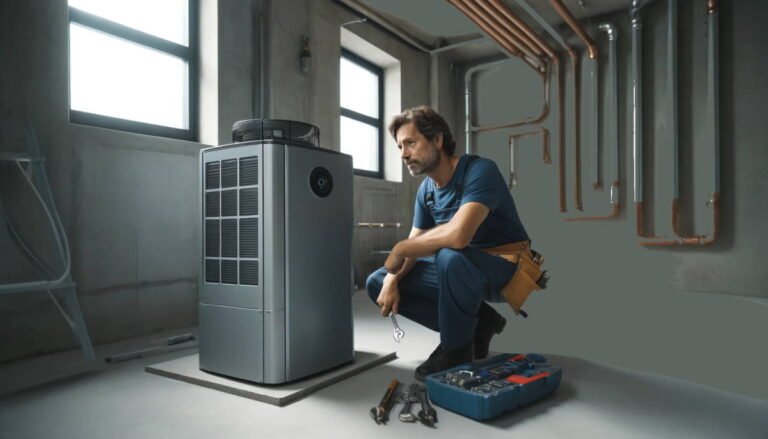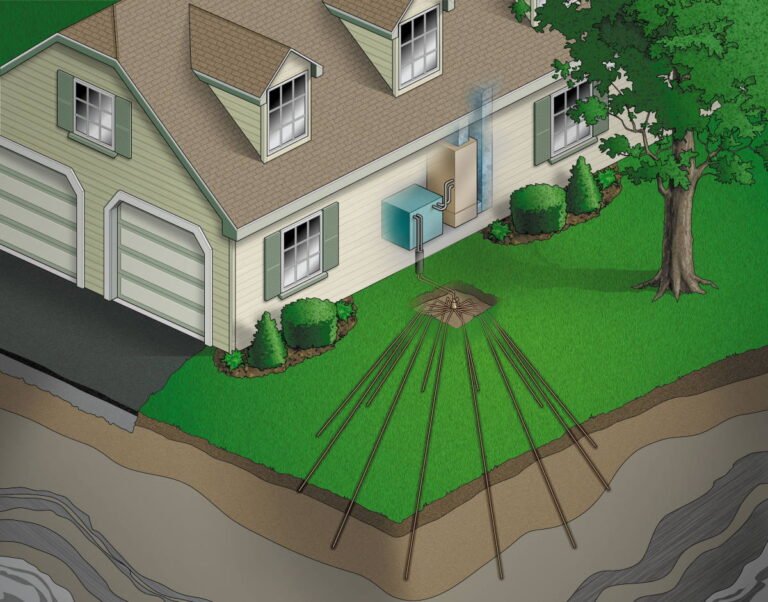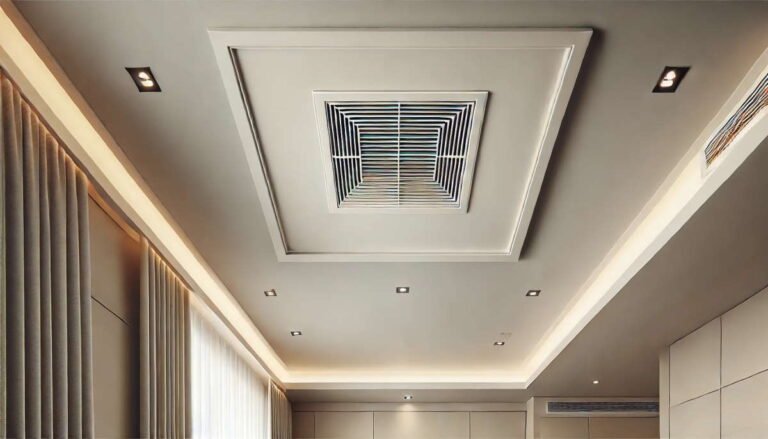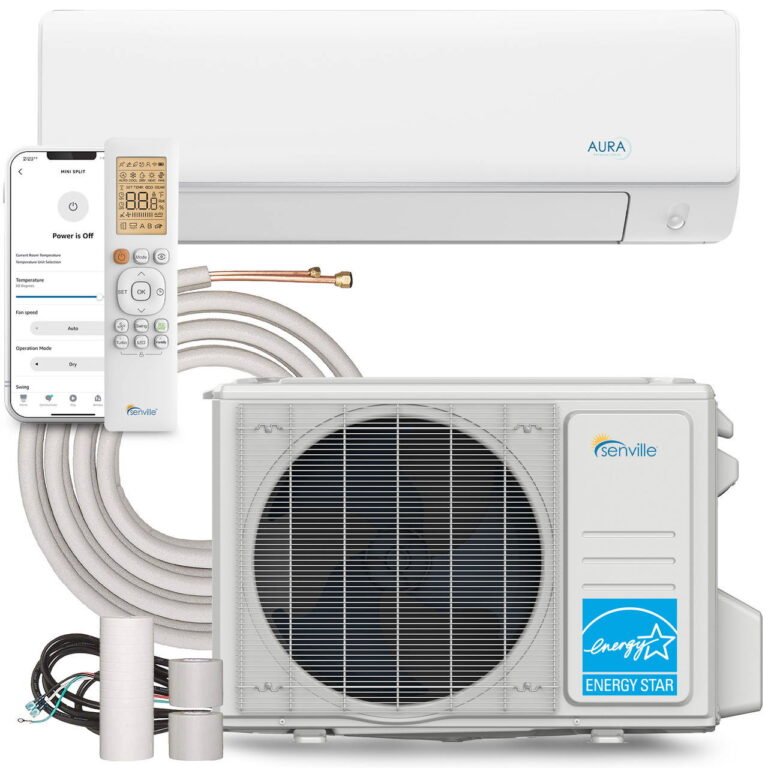14 Benefits of Heat Pumps: How to Improve Home’s Comfort
As we all aim to make our homes more energy-efficient and eco-friendly, understanding the benefits of heat pumps is key.
These systems not only save a lot of energy but also boost comfort, reduce our carbon footprint, and offer long-term savings on costs, making them a top choice for savvy homeowners.
Let’s explore their advantages and see why they might just be the perfect fit for your home.

Benefits of Heat Pumps: Highlights
- Exceptional Energy Efficiency
- Reduced Environmental Impact
- Cost Savings
- Durable
- Reduced Maintenance Requirements
- Flexibility and Versatility
- Various Types Available
- Incentives and Rebates
- Enhanced Indoor Air Quality
- Quiet Operation
- Flexibility and Scalability
- Increased Property Value
- Compatibility with Smart Home Technology
- Adoption and Future Trends
Exceptional Energy Efficiency
One of the coolest things about heat pumps is just how energy efficient they are. Imagine this: while old-school heating systems might max out at efficiencies of 80-90%, heat pumps can ramp it up to about 300% efficiency.
What does that mean for you? Well, for every unit of electricity your heat pump uses, it can produce up to three units of heat.
Take a typical air-source heat pump, for example. It might use up 1 kilowatt-hour (kWh) of electricity to pull in and move around 3 kWh of heat right into your home. That’s like getting three times the bang for your buck in terms of energy for heating or cooling compared to what you’re putting in.
And here’s the kicker: heat pumps work by transferring heat instead of making it by burning up energy directly, like many traditional setups do. This shift in how they operate can mean some pretty sweet savings on your utility bills, especially if you’re used to heating systems that run on oil, gas, or electric resistance heaters, which just aren’t as efficient.
Reduced Environmental Impact
Heat pumps are highly regarded for their minimal environmental impact. Unlike combustion-based heating systems such as gas and oil heaters, heat pumps utilize electricity and can easily be integrated with renewable energy sources like solar power. This integration can significantly reduce, if not completely eliminate, the carbon footprint associated with home heating and cooling.
Additionally, because heat pumps extract energy from the ambient air or ground, they do not produce combustion byproducts. This results in less air pollution and enhances overall sustainability, making them a cleaner choice for your home and the environment.
Cost Savings
Great savings is another significant benefit of heat pumps, potentially substantial over time. While the initial installation cost of a heat pump system might be higher than that of traditional heating systems, the long-term savings on energy bills can be considerable.
For example, a study by the U.S. Department of Energy indicated that installing a heat pump can save homeowners between 30% to 40% on their heating bills compared to conventional heating systems.
Over time, the savings on energy bills can offset the initial cost, especially in regions with extreme weather conditions where heating and cooling needs are greater.
Durable
Heat pumps are designed to have a long operational life, typically lasting about 15 to 20 years with proper maintenance. This implies fewer replacements and better cost-efficiency over the system’s lifespan.
Reduced Maintenance Requirements
Heat pumps require less maintenance than combustion-based heating systems. They do not need regular fuel deliveries (propane and oil), nor do they have as many mechanical components that can fail.
The main maintenance activities for a heat pump include cleaning or replacing the air filters, checking the ducts and airflow, and ensuring that the outdoor units are clear of debris. This simpler maintenance schedule can reduce annual upkeep costs and minimize the likelihood of costly repairs.
Flexibility and Versatility
Heat pumps use technology that lets them handle both heating and cooling, making them an all-in-one solution for year-round indoor climate control. This dual functionality means there’s no need to install separate systems for heating and cooling, which saves space and cuts down on installation costs.
Plus, modern heat pumps can work with your existing ductwork or operate in ductless setups, giving you plenty of flexibility to fit different home and building layouts.
Various Types Available
Heat pumps come in various types, each offering distinct advantages that cater to different heating and cooling needs.
For example, air-source heat pumps are popular due to their cost-effectiveness and ease of installation, making them suitable for most homes, especially in moderate climates.
Conversely, ground-source (or geothermal) heat pumps, although more expensive to install, provide unparalleled efficiency and performance year-round, regardless of external temperatures.
For environments with abundant water resources, water-source heat pumps can be an excellent choice, offering efficient heat transfer capabilities with minimal environmental disruption.
This variety allows homeowners to choose a system that best meets their specific environmental conditions and sustainability goals, ensuring optimal efficiency and comfort.
Incentives and Rebates
To encourage the adoption of energy-efficient appliances, many governments and utility companies offer incentives such as rebates, tax credits, and grants for heat pump installations.
These financial incentives can significantly reduce the upfront cost of purchasing and installing a heat pump, making it a more accessible option for many homeowners.
Enhanced Indoor Air Quality
Heat pumps contribute to better indoor air quality compared to traditional heating systems.
They don’t burn anything to keep you warm, so there’s no smoke or soot to worry about. This means the air in your home stays cleaner and fresher.
Plus, many heat pumps are fitted with filters that snag allergens, dust, and other pesky particles. If you’ve got allergies or breathing issues, this can really help make your home a more comfortable and healthier place to be.
Quiet Operation
Modern heat pumps are built to run quietly, which really adds to the comfort of your home. Unlike the older heating and cooling systems that could be pretty loud and disruptive, heat pumps use slick technology to keep the noise down during operation. This makes them perfect for neighborhoods where keeping things quiet is important, letting you enjoy a more peaceful living space without the racket.
Flexibility and Scalability
Heat pumps are incredibly flexible and scalable, which makes them a great fit for anything from tiny apartments to big houses. Thanks to their modular design, you can add more units as needed to meet the specific heating or cooling demands of different areas in your home.
This zonal control feature lets you customize the temperature settings for each room or area, boosting comfort and making your energy use more efficient. Whether you’re chilling in the living room or turning up the heat in the kitchen, you can set just the right vibe with ease.
Increased Property Value
Installing a heat pump can increase the value of a property. As more people look for energy-efficient and sustainable living options, homes that come with modern heat pump systems tend to stand out in the real estate market.
Having a high-efficiency heating and cooling system is a major plus when you’re selling your place. It can lead to a higher resale price, making the investment in a heat pump pay off financially in the long run. It’s a smart move that can make your home more appealing to potential buyers and help you get a better return when it’s time to sell.
Compatibility with Smart Home Technology
Many modern heat pumps can be integrated with smart home systems, providing enhanced convenience and further energy savings. Homeowners can control their heating system via smartphone apps, adjusting settings remotely and monitoring energy usage in real time. This integration not only adds a layer of convenience but also helps in maintaining optimal efficiency, as homeowners can adjust temperatures based on usage patterns and preferences.
Adoption and Future Trends
As more people catch on to the benefits of heat pumps, we’re likely to see their use really take off. This trend is getting a boost from constant improvements in heat pump technology, making these systems much more effective, even in the super cold climates where they used to be less efficient. This means that heat pumps are becoming a practical choice for more and more places, expanding their reach and popularity.
Conclusion
Understanding the different types of heat pumps can really make a difference when you’re looking to keep your home cozy and your bills in check. Heat pumps are great because they use less energy, keep emissions low, and can save you money on heating and cooling. Whether you go for an air-source, ground-source, or water-source heat pump, each type has its own perks depending on where you live and what your home is like.
So, when you’re weighing your options, remember the benefits of heat pumps and how choosing the right one can make your home more comfortable and eco-friendly all year round. It’s all about finding the best fit for your space and making a choice that feels good for your lifestyle and the planet.
More About Heat Pumps
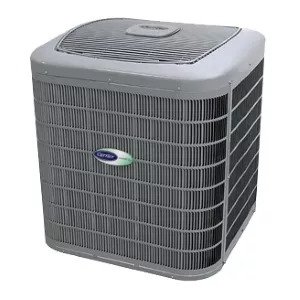
Heat Pump Not Cooling? Here’s What You Need to Know
Heat pumps are essential not only in the winter for heating our homes but also in the summer to cool…
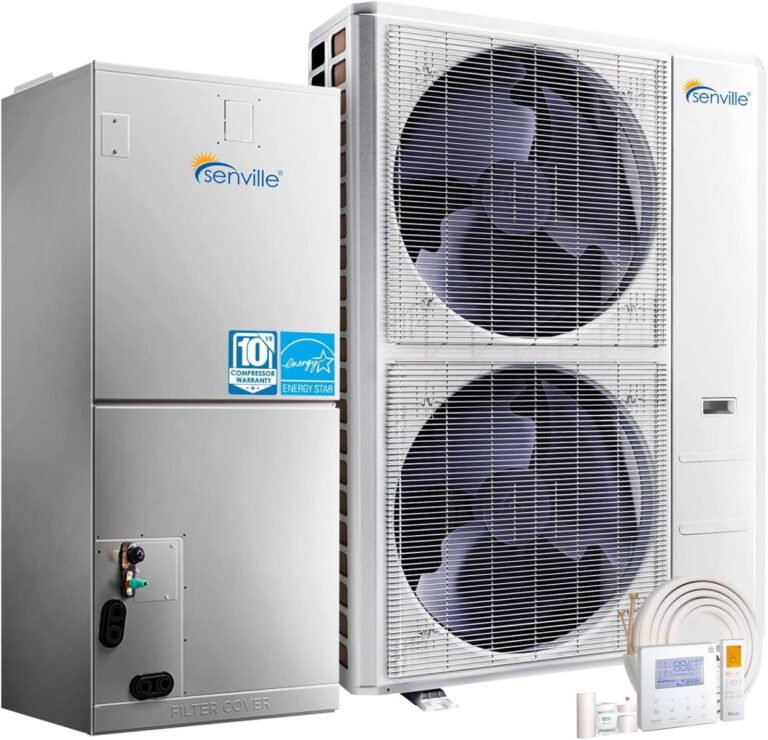
Compare Ductless Mini-Split Heat Pumps vs. Window Heat Pumps: Which Is Right for You?
In this article, we are going to look at ductless mini-split heat pumps vs. window heat pumps, examine how each…
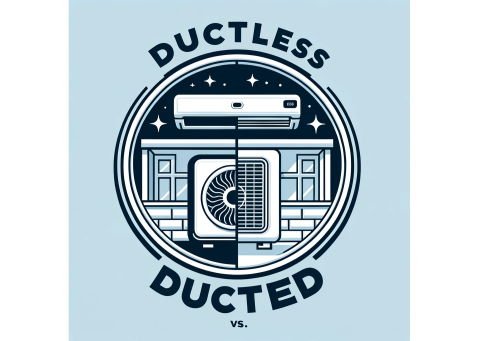
Explore the Differences: How Ductless vs. Ducted Heat Pumps Compare
Deciding between ductless vs. ducted heat pumps is as easy as planning a holiday. You know it’s going to cost…

